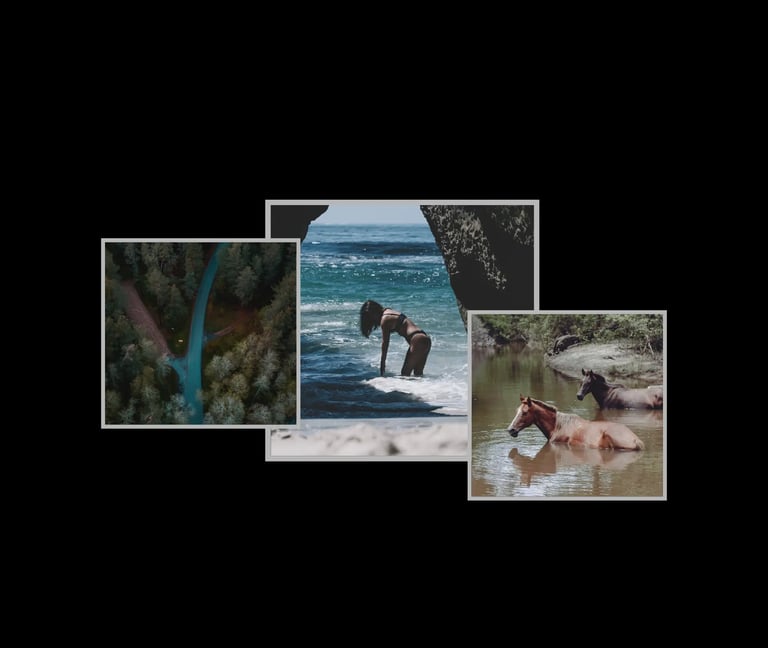France vs. Fast Fashion: Why Paris Is Right to Push Back on Shein and Temu
SUSTAINABILITYCONSUMERISM


In a vote that drew little suspense but carried enormous weight, the French Senate on June 10, 2025, passed legislation aimed squarely at two of the most prolific avatars of ultra-fast fashion: Shein and Temu. It was not a decision that came out of nowhere. For years now, France has watched the quiet erosion of its textile ecosystem, the cultural dilution of fashion as craft, and the environmental wreckage left in the wake of throwaway clothing. What happened this June was not a sudden awakening—it was a long-overdue reckoning.
Shein and Temu didn’t just disrupt fashion. They dislocated it. In a matter of months, they can churn out tens of thousands of new products, shipping them to Europe in single-item packages priced so low they laugh in the face of sustainability. For under €5, a teenager in Marseille can order a dress that’s passed through more hands and more chemicals than a pharmaceutical supply chain—and will likely be worn once before it’s tossed into the trash.
France, it seems, has had enough. And rightly so.
The new legislation, which imposes escalating eco-taxes, bans advertising for ultra-fast fashion, and demands transparency on environmental scores, is being called “protectionist” by critics in Brussels and Beijing alike. But let’s be clear: this is not a nativist tantrum, it’s a rational act of national and ecological self-defense.
The ultra-fast fashion model is built on a kind of digital sleight-of-hand: platforms scrape trends, automate production, and flood social feeds with micro-targeted marketing. The problem isn’t just that these clothes are cheap. It’s that they are designed to be disposable, encouraging a culture of compulsive consumption while externalizing every conceivable cost—to workers, to water systems, to the climate. France is the first country in Europe to meaningfully say: non.
Some will argue this is just politics wrapped in polyester—that the real target is Chinese economic power, not carbon footprints. But this ignores the broader context. French labels like Camaïeu, Pimkie, and even Sézane have suffered as the value proposition of quality was buried under a landslide of €2 t-shirts. Meanwhile, environmental watchdogs report that over 700,000 tonnes of textiles are discarded in France annually, with nearly half burned or buried.
So the Senate took action. And in doing so, it stepped into a void left by other governments too timid to upset digital commerce giants. There’s irony in the fact that France, a country often lampooned for its bureaucracy, has been the first to so effectively outpace the algorithm.
This is not to romanticize the past. The traditional fashion industry has its own skeletons—from exploitative labor to unsustainable materials. But what ultra-fast fashion has done is inject steroids into those flaws, then export them globally at scale. With influencer marketing weaponized and consumer behavior gamified, ethical fashion has become a niche hobby, not a default norm.
But that may be changing. France’s move to tax environmental impact and strip away ad privilege is not just a policy maneuver—it’s a cultural intervention. It says: if you want to sell here, you’ll have to play by a new set of rules, ones that reward durability over disposability, transparency over trend-chasing.
Of course, this isn’t the end. The legislation now heads to a joint committee and will likely meet resistance from both EU regulators and tech-savvy lobbying groups. Enforcement will be key. If Shein can simply rebrand, or if influencers can promote ultra-fast products under vague hashtags, the effectiveness of the law could be diluted.
Still, this marks a pivotal shift. It’s France choosing quality over quantity, even when that choice is unfashionable in the short term. It’s a bet that the future of fashion—of commerce, even—won’t be decided solely by those who can move the fastest, but by those willing to move the wisest.
And perhaps most of all, it’s a reminder that in the face of an unsustainable status quo, doing something bold is always better than doing nothing at all.


